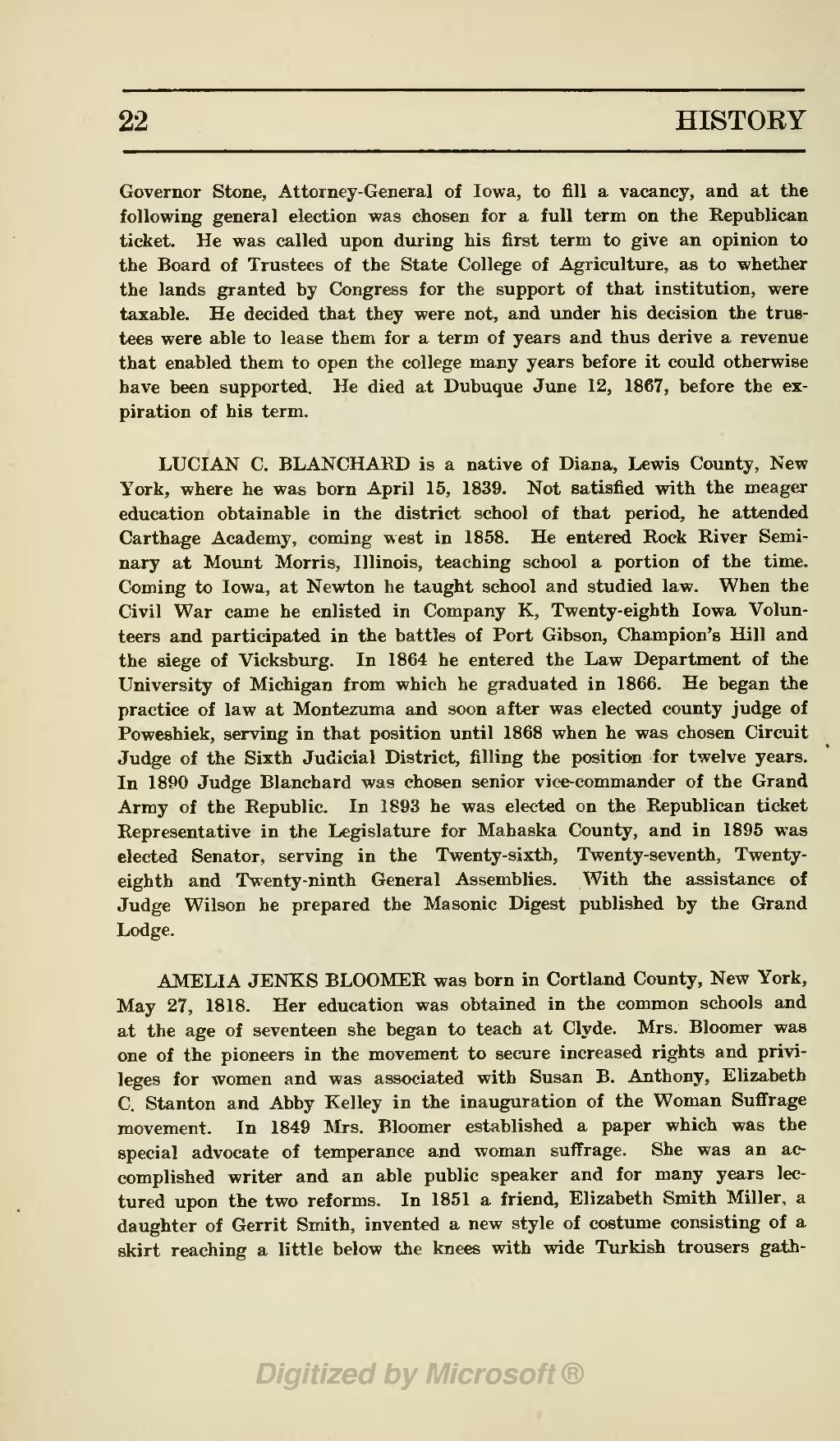Governor Stone, Attorney-General of Iowa, to fill a vacancy, and at the following general election was chosen for a full term on the Republican ticket. He was called upon during his first term to give an opinion to the Board of Trustees of the State College of Agriculture, as to whether the lands granted by Congress for the support of that institution, were taxable. He decided that they were not, and under his decision the trustees were able to lease them for a term of years and thus derive a revenue that enabled them to open the college many years before it could otherwise have been supported. He died at Dubuque June 12, 1867, before the expiration of his term.
LUCIAN C. BLANCHARD is a native of Diana, Lewis County, New York, where he was born April 15, 1839. Not satisfied with the meager education obtainable in the district school of that period, he attended Carthage Academy, coming west in 1858. He entered Rock River Seminary at Mount Morris, Illinois, teaching school a portion of the time. Coming to Iowa, at Newton he taught school and studied law. When the Civil War came he enlisted in Company K, Twenty-eighth Iowa Volunteers and participated in the battles of Port Gibson, Champion's Hill and the siege of Vicksburg. In 1864 he entered the Law Department of the University of Michigan from which he graduated in 1866. He began the practice of law at Montezuma and soon after was elected county judge of Poweshiek, serving in that position until 1868 when he was chosen Circuit Judge of the Sixth Judicial District, filling the position for twelve years. In 1890 Judge Blanchard was chosen senior vice-commander of the Grand Army of the Republic. In 1893 he was elected on the Republican ticket Representative in the Legislature for Mahaska County, and in 1895 was elected Senator, serving in the Twenty-sixth, Twenty-seventh, Twenty-eighth and Twenty-ninth General Assemblies. With the assistance of Judge Wilson he prepared the Masonic Digest published by the Grand Lodge.
AMELIA JENKS BLOOMER was born in Cortland County, New York, May 27, 1818. Her education was obtained in the common schools and at the age of seventeen she began to teach at Clyde. Mrs. Bloomer was one of the pioneers in the movement to secure increased rights and privileges for women and was associated with Susan B. Anthony, Elizabeth C. Stanton and Abby Kelley in the inauguration of the Woman Suffrage movement. In 1849 Mrs. Bloomer established a paper which was the special advocate of temperance and woman suffrage. She was an accomplished writer and an able public speaker and for many years lectured upon the two reforms. In 1861 a friend, Elizabeth Smith Miller, a daughter of Gerrit Smith, invented a new style of costume consisting of a skirt reaching a little below the knees with wide Turkish trousers gath-
